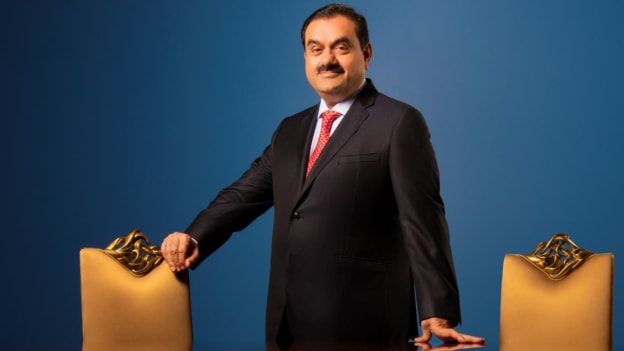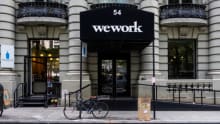Adani-Hindenburg Saga: What the future holds for business tycoon

For a long time, Gautam Adani basked in an aura of invincibility. As a billionaire, his assets have seen an exponential rise perhaps more than any other business tycoon in India could ever think of attaining such a fast fortune. His meteoric rise was seen as a source of pride for India and a sign of the ambition of a new generation of Indian entrepreneurs eager to expand their ventures globally. Some even began to compare Adani to Western magnates such as George Soros.
With his sprawling energy-to-ports empire looking invincible, he featured among the world’s richest. Be that as it may, though his stunning rise became a topic of controversy. Now, a damning short-seller attack has left the billionaire badly hurt. Adani is surely weathering the worst crisis of his corporate life. His credentials are being questioned and the issue is raising bigger, darker questions about India's credibility as a global growth engine and a destination for international investors.
Fall from grace
His fortune started tumbling as the Adani Group has shed $108 billion in market value since Hindenburg Research accused it of stock manipulation and accounting fraud in a January 24 report.
The downhill journey sent Adani himself sliding from No. 2 among the world's wealthiest, to No. 21 on the Bloomberg Billionaires Index.
The tycoon’s scrapping of $2.4 billion share sale this week made clear the potential for lasting impact. Adani's rebuttal had failed to reassure investors.
The small, but famed, US short-seller's feedback revived old suspicions about corporate governance at the Adani conglomerate.
The 100-page report’s expose threatens to undermine investor confidence in India more broadly and in the nation's regulatory framework irrespective of the veracity of the claim.
The report has baffled experts. "Things are moving very fast in the market, with a potentially major reassessment of the risks of investing in Indian equities by international investors," Singapore-based Gary Dugan, Chief Executive Officer of Global CIO Office, told Bloomberg. "That reassessment includes governance, corporate transparency, nepotism, and indebtedness."
According to critics, Adani’s closeness with Prime Minister Narendra Modi for decades has held him in good stead. They say Adani’s business — with investments in capital-intensive projects such as airports, power plants, and data centers — is at the core of Modi's growth agenda.
The crafty tycoon’s access to the powers that be helped him to get business benefits. His aligning of business goals with Modi's development initiatives speaks of a symbiotic relationship between them.
Dent in India’s image & fear among investors
Fear runs deep among investors in the thought that if the slide in asset prices continues and further shakes their confidence in Adani's empire, that would be a setback for India's growth story.
Adani conglomerate fiasco came at a time when banks like HSBC Holdings Plc and companies such as Apple Inc. are eyeing India for business expansion. It is likely to cost India dear when the Asian superpower is trying to elbow out its rival China in projecting itself as one of the best investment destinations in the world.
According to Alicia Garcia Herrero, Chief Economist for Asia Pacific at Natixis SA, Adani's scandal is not coming at the best of all times for India as China is lifting Covid restrictions.
“The foreign investors are clearly watching,” she said.
What’s it all about?
On January 24, Hindenburg, in its report, alleged that Adani Group companies are artificially overvalued due to accounting fraud. According to the short seller, the seven listed companies of the Adani Group have an 85% downside on a fundamental basis due to excessive valuations.
The report pointed out that the group companies are indebted to an extent that should have brought their share prices down, but this has not happened. "Key listed Adani companies have also taken on substantial debt, including pledging shares of their inflated stock for loans, putting the entire group on precarious financial footing. 5 of 7 key listed companies have reported ‘current ratios’ below 1, indicating near-term liquidity pressure," the report said.
As to why a massive multinational should commit fraud, the report took pains to point out that Gautam Adani, Founder, and Chairman of the Adani Group, has amassed a net worth of roughly $120 billion, adding over $100 billion in the past 3 years mainly through stock price appreciation in the group’s 7 key listed companies, which have spiked an average of 819% in that period. Hindenburg characterised the group's meteoric rise as "the largest con in corporate history."
The findings of the report on Adani were based on interactions with dozens of individuals, including former senior executives of Adani and also reviewing thousands of documents, and conducting diligence site visits in almost half a dozen countries.
While many of the claims have circulated among the Indian investing class and media for years, their emergence in the global conversation seemed to trigger a crisis of confidence.
Suspicious timing of the report
Though the timing of the report is questionable as it was published just a day before the FPO on January 25, its claims have raised serious questions on corporate governance. It has triggered all stakeholders from investors including the State Bank of India, the country’s largest bank, and the country’s largest insurance company, LIC, to issue clarifications on their limited exposure to the Adani Group.
Adani denied Hindenburg's accusations. On January 27, Adani Enterprises filed a presentation covering Adani Group’s response to Hindenburg Report. It was titled "Myths of Short Seller".
According to Adani's presentation, Hindenburg asked 89 questions in total. While some of these questions are in regard to the group's related party transactions, DRI (Directorate of Revenue Intelligence), and court cases. However, there are 21 questions in total that cannot be claimed to be the result of any investigation over a two-year period or any such assertion as they were disclosed in public documents all the way back from 2015 onwards.
In a 413 page response to the Hindenburg research, Adani Group termed the report baseless and allegations "unsubstantiated speculations". “It is tremendously concerning that the statements of an entity sitting thousands of miles away, with no credibility or ethics has caused serious and unprecedented adverse impact on our investors," the Adani Group said.
The group also called the report, "not merely an unwarranted attack on any specific company but a calculated attack on India."
Hindenburg Research, based in New York, is barely five years old and was founded by a CFA and chartered alternative investment analyst, Nathan Anderson, who has publicly declared himself passionate about uncovering fraud and scams.
The short seller said the Adani response did not address any of the substantive points that the report raised. Rather, Adani has 'stoked a nationalist narrative' that seeks to conflate the 'meteoric rise and the wealth of its chairman, Gautam Adani, with the success of India itself'.
Meanwhile, Hindenburg has refused to comment on its short positions with Adani - but has invited the group to take legal action over the report.
The sudden slump in Adani stocks pushed Gautam Adani to call off his FPO even after it was fully subscribed. Adani said the decision was made by the board to protect the interest of the investors and the money raised would be returned.
What was set to be a historic FPO for the Indian stock market had to be withdrawn. This further dented investor confidence and Adani stocks continued to bleed.
RBI inquiry to ascertain Indian banks’ exposure
The Reserve Bank of India (RBI), the country’s central bank, launched an inquiry to assess the dealings of the Adani Group and its exposure to various Indian banks. The RBI had asked banks to share the details of loans and other transactions that have or were to take place between them and any of the Adani companies.
The RBI allayed investors’ concerns and said the banking sector remains resilient and stable. The RBI states that it keeps a constant vigil on the banking sector and on individual banks to maintain financial stability.
Credit Suisse and Citigroup refused to accept Adani Group’s securities as collaterals for loans.
International giants including brokerage firm Credit Suisse and the wealth investment arm of Citigroup Inc said they have stopped accepting bonds of Adani-led companies as collaterals for margin loans in their bid to intensify their scrutiny on the beleaguered Adani Group post allegations.
Some ratings agencies are said to have begun examining the risks associated with the Adani Group’s debt and creditworthiness. CRISIL in a statement said it was monitoring the Adani Group and all outstanding ratings on the Group’s entities are under continuous surveillance. Fitch Ratings has clarified there is no immediate impact on the credit ratings of Adani companies.
Dow Jones said it was removing Adani Enterprises from its Dow Jones Sustainability Indices effective from February. 7 following allegations of stock manipulation and accounting fraud. Adani Enterprises entered the index only two months ago.
The expulsion may seem unimportant, but the move hints at the international investor community’s distrust of the Adani Group. Fears of misgovernance and corporate fraud in a country, which was being touted as the world’s top investment destination as recently as last month at the World Economic Forum in Davos, may have contributed to market mayhem led by Adani Group’s stocks.
The road ahead for Adani
Finance Minister Nirmala Sitharaman, in a post-Budget interview, expressed her trust in Indian market regulators and assured good governance practices are being followed.
“India remains a well-governed, well-regulated financial market. Our regulators are very stringent about certain corporate governance practices. So many lessons have been learnt over the decades,” Sitharaman told News18.
On February 2, National Stock Exchange put three of Adani Group’s stocks on the additional surveillance measure framework or the ASM. This framework allows the stock exchanges to check short selling of stocks. The three group companies include Adani Enterprises, Ambuja Cement, and Adani Port.
In a bid to win investor trust back, Gautam Adani had called off a fully-subscribed FPO and has since clarified the Group’s balance sheet is “very healthy with strong cash flows and secure assets”, and the Group has an “impeccable track record of servicing their debt”.
Adani Group has rubbished the Hindenburg report and has said it was mulling legal action against the firm, a move the short-seller has welcomed.
We'll have to wait and see how investors see the Adani stock mayhem. At the moment, it is clear the Hindenburg report has opened the floodgates for the Adani Group to come clean on its balance sheet and refute allegations in all manner possible.















